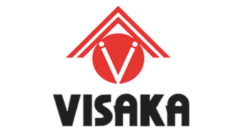Corrections and bear markets inflict harm on countless individuals. In a classic correction, the broad market averages lose 10% to 20% of their value, whereas they plunge 20% to 35%, or more, in a real bear market. Some equity funds get hit worse than others in a bear market condition.
In addition to short-term risk, there's always a small chance that stocks can do poorly for about a decade introducing a long-term danger.
2. Interest-Rate Risk:
This peril confronts investors directly, especially those in longer-term portfolios. Simply put prices fall when interest rates rise.
If interest rates rise significantly, fixed-income securities become relatively more attractive, so money is shuttled from the stock market into higher-yielding bond and money market funds.
3. Currency Risk:
If your country's currency grows stronger, you will experience a currency loss on your foreign securities. Conversely, if your currency weakens, you will enjoy a bonus.
Fluctuating exchange rates are of particular concern to single-country investors. It can be devastating for individuals who hold funds for short periods.
In addition, a hedge costs money. Currency risk is generally not too much of a problem for long-term investors in well-diversified international funds.
4. Asset-Class Risk:
Stocks, bonds, and cash are the three major asset classes. If you allocate a disproportionate amount to any of the three main categories, or totally ignore one or two of them, you are subject to asset-class risk.
It's prudent to diversify across all three major asset classes even though you want to give primary emphasis to, say, stocks.
5. Management Risk:
The majority of actively managed funds underperform the broad market benchmarks. Even though a fund has beaten the market in the past, there are no guarantees it will continue to do so.
Individuals who stick with poorly run funds risk substantial under performance, which can compound over time. Investors in index mutual funds avoid management risk.
6. Sector Risk:
Industry or sector risk faces those who invest in narrowly focused sector portfolios, such as those focusing on health care or even utility stocks.
It also affects individuals holding more diversified funds that make big sector bets.
7. Country Risk:
This danger, which includes economic and political instability, is associated with single-country investments, especially those targeting developing markets.
8. Credit Risk:
The risk of default can be a concern for high-yield bond fund investors. Junk bonds can experience staggering losses when setbacks occur in this sector.
9. Tax-Rate Risk:
Investors have to be cautious in changes in tax laws that could make their holdings less valuable.

 Home
Home Saral Gyan Freebies
Saral Gyan Freebies Saral Gyan Services
Saral Gyan Services About Us
About Us Contact Us
Contact Us



















